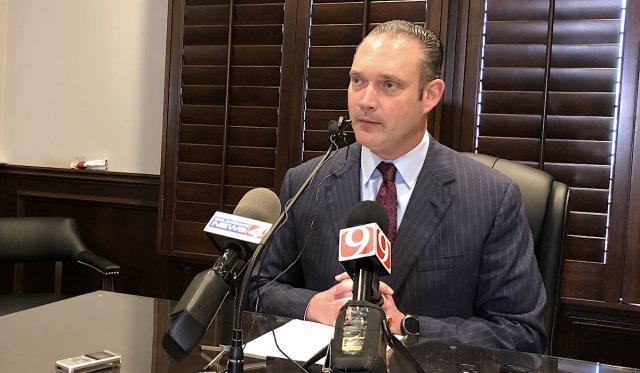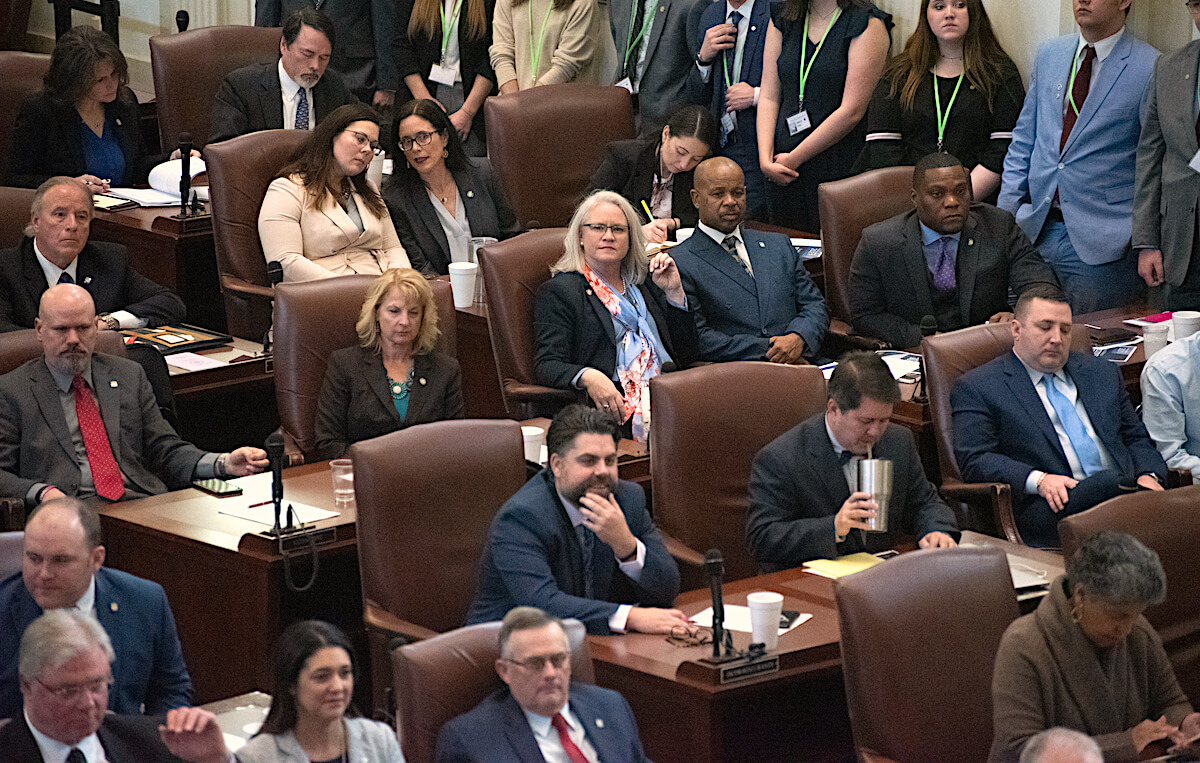

Oklahoma Speaker of the House Charles McCall has called a bipartisan House Caucus meeting at 11:30 a.m. today to discuss the Legislature’s options for continuing and concluding its 2020 session during the global COVID-19 pandemic.
Speaking by phone Sunday evening, McCall (R-Atoka) said the unusual caucus between Republican and Democratic representatives “might be unprecedented” and would feature an update from Oklahoma State Department of Health officials.
McCall said House members will have the chance to ask OSDH “tough questions” and gather information to report back to their districts. Caucus meetings are closed to the public, but McCall said media and constituents will be updated soon after the bipartisan House Caucus meeting concludes.
“We will also be discussing some protocols and procedures going forward for the House in this area,” McCall said. “We’ll get together with the media following and give you an update of that.”
The Oklahoma State Senate is scheduled to hold its own bipartisan caucus meeting at 2 p.m. today, according to Aaron Cooper, deputy chief of staff and communications director for Senate President Pro Tempore Greg Treat (R-OKC).
‘We are going to do the best we can’

McCall and Oklahoma Gov. Kevin Stitt said at the end of last week’s legislative schedule that the House, Senate and governor’s office were working on “contingency plans” in case community spread of COVID-19 occurred in Oklahoma.
By Sunday evening, Stitt had signed an executive order declaring a state of emergency, and OSDH officials had confirmed an eighth Oklahoman’s diagnosis with the respiratory condition.
With public health professionals projecting that infections from the virus will continue to rise through April at the least, questions about how to operate the Oklahoma State Capitol and how to potentially expedite the conclusion of session have become more pressing. The federal Centers for Disease Control issued new guidelines urging people to avoid gatherings of more than 50 people. The Oklahoma Legislature currently has 147 members with hundreds of state employees working in the Capitol.
“Obviously, we are talking about contingency plans for the House depending on what the situation is currently and what it could be and making sure we have a plan that we could follow no matter what happens,” McCall said. “I have been here eight years, and we’ve never had a bipartisan caucus meeting like this. I think that should indicate how serious we are about this issue.”
In describing potential contingency plans, McCall emphasized the primary goal of any session of the Oklahoma Legislature.
“We have one constitutional duty in regular session, and that is too complete a budget. The budget is always the priority that you have to get in place and pass for continuity of the state,” McCall said. “Beyond that is policy. Policy is always prioritized through the process. If we were pressured due to an outbreak of COVID-19, we would certainly have policies that would be priorities of the House, Senate and governor that would be taken up and addressed first.”
Last week, House Minority Leader Emily Virgin (D-Norman) told NonDoc that she believed the Legislature should look at limiting public access to the Capitol, as has been done in several other states. In New York, two assemblymen have been diagnosed with COVID-19 infections.
“I feel good about the conversation I had with the speaker that we are constantly monitoring the situation and talking to the State Department of Health and heeding their advice on things,” Virgin said Thursday. “I think that looking at limiting public access is something we are doing and should continue to do.”
Sunday night, McCall summarized the House of Representatives’ focus.
“We are going to do the best we can for the people of the state,” he said.
Constitutionally, the Legislature is required to adjourn sine die this year by 5 p.m. Friday, May 29. But construction schedules at the State Capitol have had legislative leaders discussing an earlier adjournment to ensure timely completion of chamber renovations.
State COO pushes telework status for employees
Also Sunday, Oklahoma Chief Operating Officer John Budd emailed state agency directors with guidance and “healthy workplace strategies” during the COVID-19 pandemic. Remote working strategies were part of Stitt’s executive order.
“You and your teams are in critical roles to keep fellow Oklahomans, who are counting on all of us to provide leadership in these challenging times,” Budd wrote. “Things will continue to be fluid and you can expect additional communications and changes.”
Budd instructed agency directors to “move all employees you can to full-time telework status,” adding that “all employees that currently have the ability to telework should.” He specified telework guidelines and asked that directors “offer leniency” for employees dealing with changes to their childcare options.
“Thank you for your service to your fellow Oklahomans,” Budd wrote in concluding his directives. “It is an honor to serve with you.”
City of OKC also taking precautions
Sunday evening, Oklahoma City Mayor David Holt joined Oklahoma City-County Health Department officials for a press conference previewing actions the city could take as COVID-19 spreads in the metro:
Holt announced he will sign an order declaring a city emergency today, an action that will revoke municipal event permits and limit large gatherings at public places.
(Update: This story was updated at 9:10 a.m. Monday, March 16, to include information about the bipartisan Senate Caucus meeting.)




















